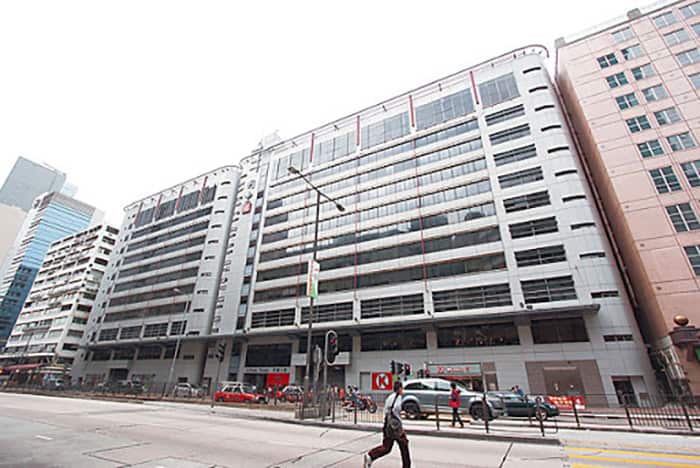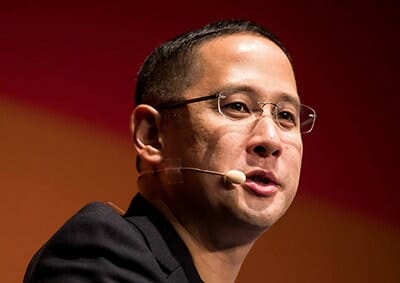
Li & Fung’s headquarters in Hong Kong’s Cheung Sha Wan area
Consumer goods sourcing and distribution firm Li & Fung delisted from the Hong Kong stock exchange yesterday, ending a run of 28 years on the bourse through a buyout backed by Asia’s largest warehouse developer and fund manager that valued the firm at HK$10.7 billion ($1.4 billion).
GLP teamed up with the Fung family, which controlled the formerly listed firm which bears its name, to privatise the firm, with the Singapore logistics real estate giant paying HK$7.2 billion to buy out the publicly traded shares not held by the family and gain a 67.7 percent economic interest in the 114-year-old trading house, according to an announcement by Li & Fung.
Following the privatisation, the Fung family remains the controlling shareholder of the company with 60 percent of the voting shares, while GLP owns 40 percent of the voting shares and 100 percent of the non-voting shares.
The HK$1.25 per share price GLP paid to acquire the shares represented a premium of 95.2 percent over the average closing price for the company’s shares over the 30 days up to 20 March when the buyout offer was made, with shares in the company standing at HK$1.24 when trading was halted on 15 May.
Taking a Bow after 28 Years
“Having arrived at this important milestone, I would like to convey our deepest gratitude to all shareholders who have supported Li & Fung during the last 28 years as a publicly listed company in Hong Kong,” said the company’s group chairman, William Fung, adding that the firm would maintain its commitment to “staff, customers, suppliers, business partners, and the community of Hong Kong”.

CEO Spencer Fung says that the buyout is the start of a transformation for Li & Fung
Despite growing into a trading powerhouse that acts as the go-to source for the likes of Calvin Klein and Tommy Hilfiger, the company has lost 95 percent of its market value since 2011, while turnover has almost halved.
At its peak in 2014, Li & Fung’s revenues hit nearly $20 billion – 43 percent more than its $11.4 billion turnover in 2019.
Having enjoyed its heyday in an era where business deals were done in the lobby of Hong Kong’s Peninsula Hotel, the company’s business has eroded as the sector has moved increasingly to online platforms.
Transforming a Dated Business Model
The company is billing the privatisation as an attempt to claw back some of the market share it has lost as the brick-and-mortar retailers that dominate its customer base have suffered as a result of the rise of e-commerce.
“Today marks the start of a new journey for Li & Fung as we focus on achieving a fundamental transformation of our business,” said Li & Fung’s group chief executive office, Spencer Fung.
With $89 billion in assets under management across Brazil, China, Europe, India, Japan, and the US, GLP’s logistics network may offer Li & Fung an opportunity to turn around its failing business.
GLP’s co-founder and CEO Ming Mei said in a statement announcing the delisting that GLP and Li & Fung share a vision to create what he calls the “digital supply chain of the future”.
Having pursued investments in online supply chain systems and tech startups in recent years, the warehouse giant will explore areas where the two firms can “develop shared opportunities between logistics networks and technology innovation” for their customers, according to GLP’s chairman.
Delisting as Stock Value is Slashed
The partners have taken the company private at a time when many of Hong Kong’s listed real estate companies have had billions of dollars wiped from their stock value as corporate equities in the Asian financial hub have been hammered by months of bad news.
With stock prices on a downward slope, billionaire Peter Woo just three months ago launched a bid to take Hong Kong-listed Wheelock & Company private in a deal worth just under HK$48 billion.
When Woo made the offer, shares in Wheelock were trading at HK$47.25 each, down more than 20 percent from their April 2019 high of HK$59.20.
For GLP, the buyout continues the firm’s deal-making momentum this year, coming just a month after the company reached a final close on its RMB 15 billion ($2.1 billion) GLP China Income Fund I (GLP CIF I) and two months after it agreed to buy a portfolio of European warehouses from Australia’s Goodman Group for €1 billion ($1.1 billion).
Leave a Reply